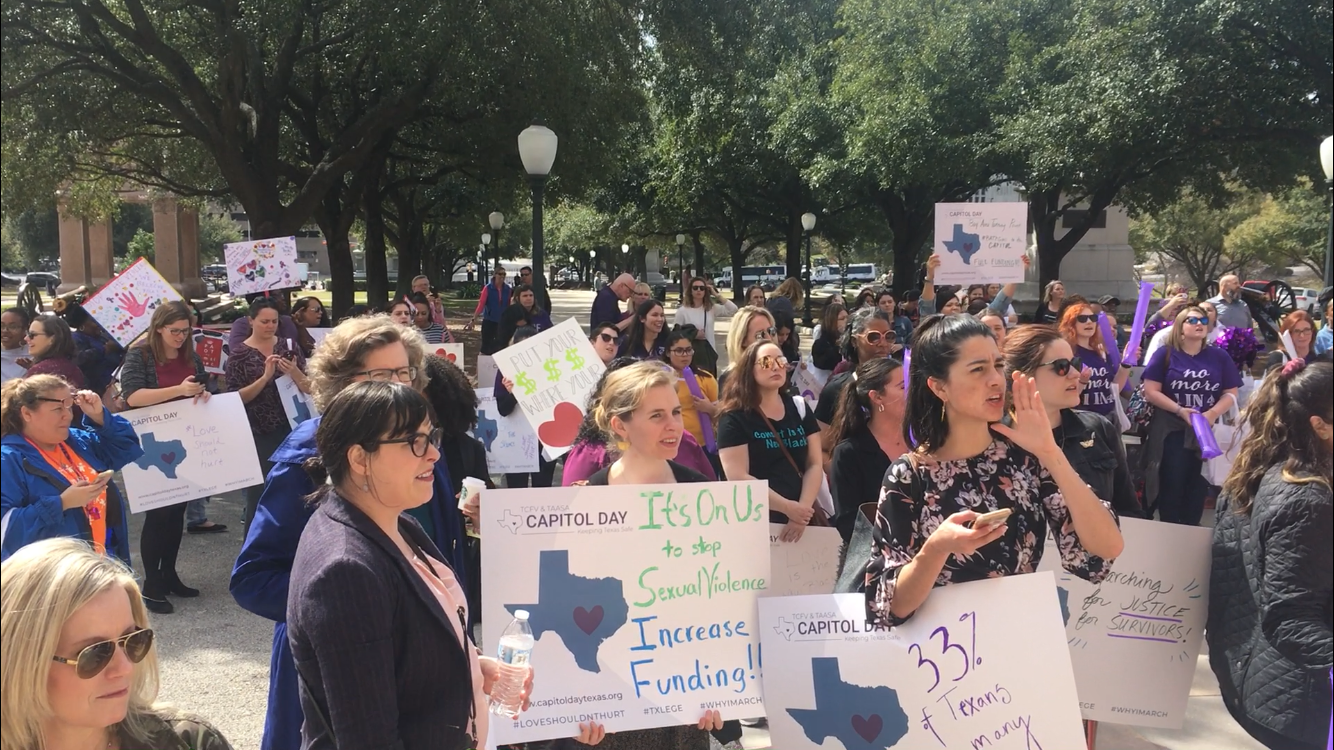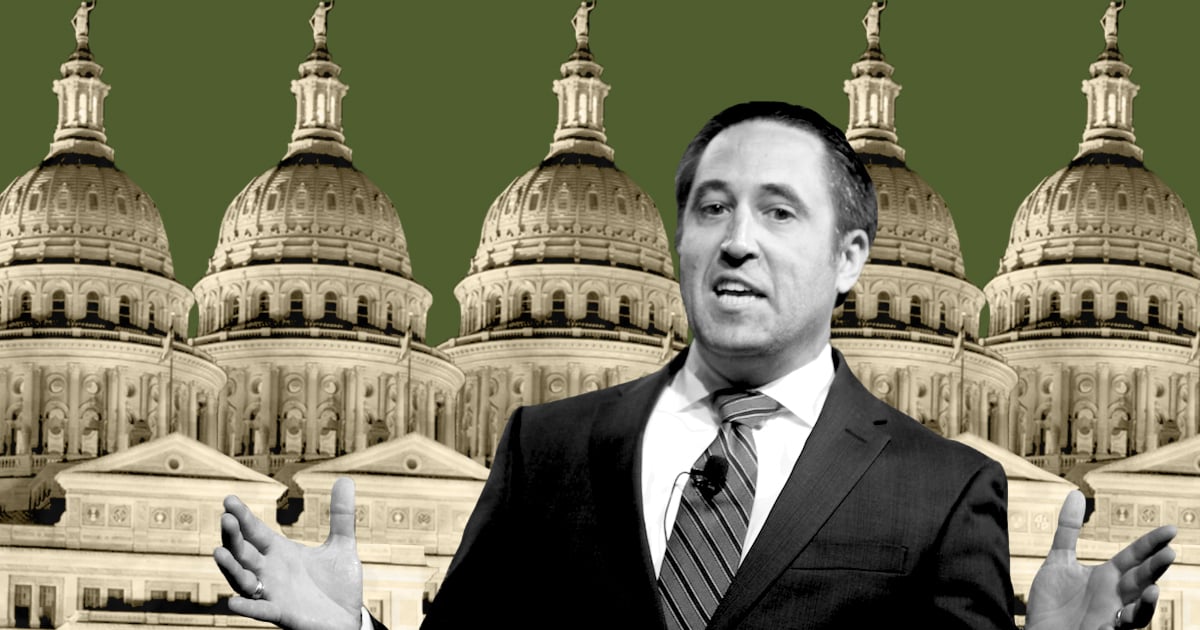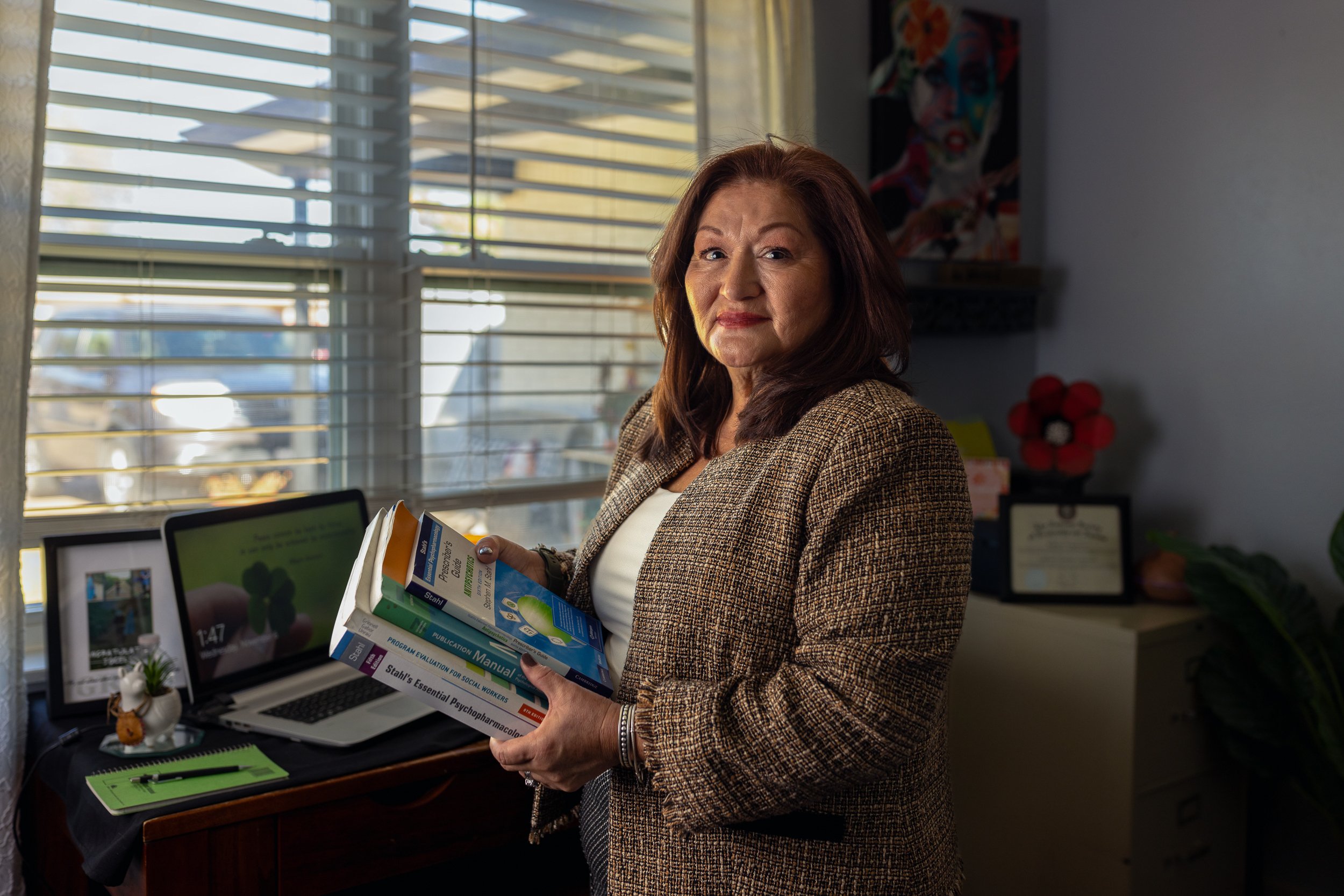
Texas Lawmakers Propose Funding Increase to Eliminate Waitlists at Rape Crisis Centers
One-quarter of the state’s crisis centers, which provide free services to survivors of sexual assault, have waitlists between two and five months.

Requests for services at rape crisis centers in Texas have increased by around 25 percent since 2016, driving waitlists for counseling up to eight months in some parts of the state, according to the Texas Association Against Sexual Assault.
The advocacy organization surveys crisis centers, which receive state funding and provide free services to survivors of sexual assault, to determine their funding needs before each legislative session. This year, the group asked lawmakers to give crisis centers a big raise.
“We went to [lawmakers] and said, ‘If you put in $7.5 million, you can make sure nobody who has experienced an assault has to wait,’” said Chris Kaiser, policy director for the Texas Association Against Sexual Assault. When the preliminary House and Senate budgets were unveiled in January, Kaiser said he was “totally elated” to see that lawmakers had included at least an additional $7.5 million for rape crisis centers in draft budget proposals, a more than 50 percent increase from $14.5 million per biennium.
At current funding levels, the centers simply can’t keep up. One-quarter of the 88 facilities in the state had wait times for counseling of two to five months, according to the latest survey.
“Survivors are triggered by the fact that people are publicly arguing about the validity of survivors’ outcries.”
Crisis center directors attribute the increase in demand to the #MeToo movement, which has encouraged survivors to come forward and seek counseling for trauma from past assaults, and to other triggering events in the last couple years.
“We’ve seen spikes in calls that correspond with spikes in sexual assault in media,” said Paige Martin, development director at the Rape Crisis Center in San Antonio. “We got almost double the amount of calls during the Dr. Ford-Kavanaugh hearing. Survivors are triggered by the fact that people are publicly arguing about the validity of survivors’ outcries.”
State-funded rape crisis centers are required to operate a 24-hour crisis hotline and to offer free counseling for adult survivors of sexual assault. From 2016 to 2017, the number of survivors served by rape crisis centers climbed from 104,000 to 132,000, according to the Office of the Attorney General.

State Senator Joan Huffman, a Republican from Houston who chairs the budget subcommittee that oversees funding for the centers, said she heard advocates’ concerns and pledged to fight for the funding.
“I’m very supportive of the rape crisis centers and funding for sexual trauma and counseling. So we’ve tried in every way we can to support that effort and that mission,” Huffman said.
Centers can use the funding to hire therapists and support staff, and to upgrade or add physical resources. Martin, from the Rape Crisis Center in San Antonio, said her organization needs to hire another counselor to eliminate its 45-person waitlist.“Right now a lot of our systems are at capacity,” she said.
Ashleigh Gore, senior director of counseling and therapeutic services at the SAFE Alliance in Austin, said telling survivors they must wait several weeks or months for services is extremely difficult.
“Sometimes it feels like we’re telling them ‘no’, because to that survivor coming in the door, their needs are immediate,” Gore said. “I think there’s a window of opportunity and usually that is when they come in for intake and can be seen within two weeks.”
The Texas Association Against Sexual Assault survey found that bilingual counselors and counselors who can work with children are in especially high demand across the state. That’s the case at Bridge Over Troubled Waters, a rape crisis center and domestic violence shelter in Pasadena, where wait times for child counseling can reach up to six months.
Less than 10 percent of sexual assaults are reported to law enforcement in Texas, according to a 2015 study by the University of Texas School of Social Work.
“We have our waitlist down to three months right now, but because we continuously get referrals [from other centers], it will go back up,” said Q. Olivia Rivers, deputy director of the center.
The waitlist was six months long when 15-year-old Juni sought counseling for trauma caused by family violence last year at Bridge Over Troubled Waters.
“I felt like everything was getting worse,” Juni said. “Those six months were really tough.”
Rivers said therapy is often the first step toward justice for survivors of sexual assault and domestic violence, which is why keeping up with demand for counseling at crisis centers is so important. Less than 10 percent of sexual assaults are reported to law enforcement in Texas, according to a 2015 study by the University of Texas School of Social Work. And research shows survivors who receive counseling are more likely to report their assaults to law enforcement.
“Before you can get them to file a protective order or testify, they need counseling,” Rivers said.
While Juni doesn’t plan on filing a protective order against her father, who abused her mother, she has been able to process her feelings and build her self-esteem by working through her trauma in therapy.
“When I first started, I didn’t think I was that important of a person,” she said. “They helped me connect with my emotions and know that my past doesn’t make up who I am now.”


